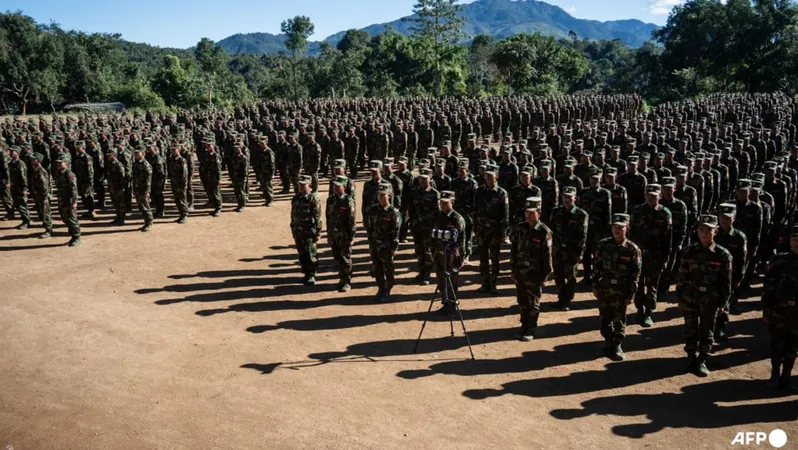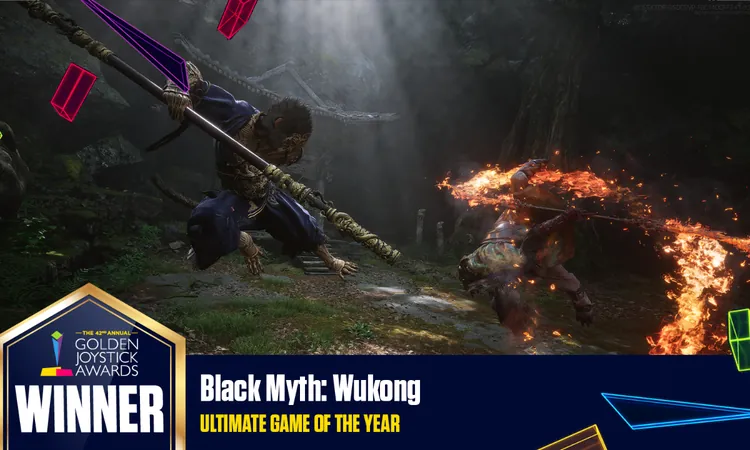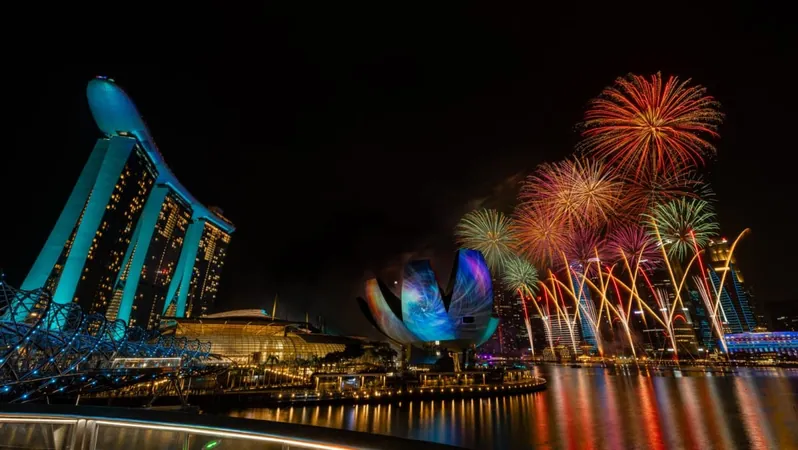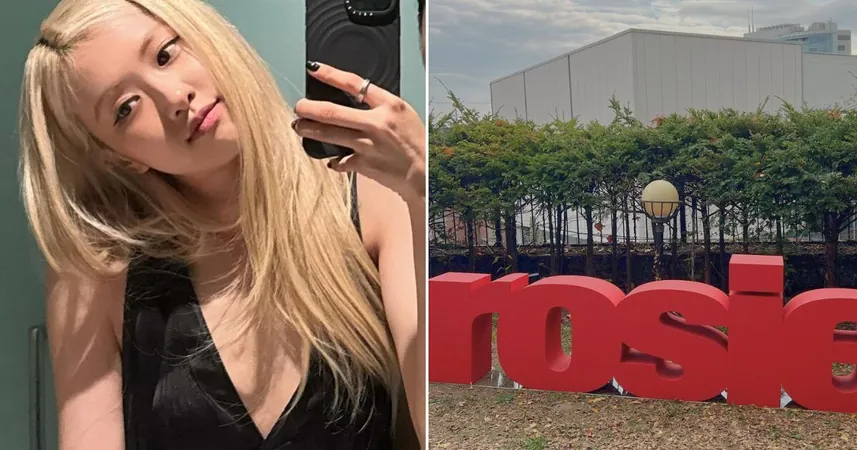
Major Myanmar Ethnic Rebel Group Extended Olive Branch for Peace Talks Amid Ongoing Conflict
2024-11-25
Author: Ming
BANGKOK: Major Myanmar Ethnic Rebel Group Offers Peace Talks
In a significant turn of events, the Ta'ang National Liberation Army (TNLA), one of Myanmar's prominent ethnic rebel groups, announced on Monday (November 25) its openness to engage in dialogue with the military junta. This statement comes amid a backdrop of intensified fighting that has besieged regions along the China border for more than a year, causing widespread destruction and humanitarian crises.
Background on TNLA and Ongoing Conflict
The TNLA boasts a formidable force of approximately 7,000 fighters, who have been in conflict with the Myanmar military for over a decade. Their struggle primarily revolves around advocating for greater autonomy for the Palaung ethnic minority in the northern Shan state. The rebels recently launched a coordinated offensive alongside two allied groups, seizing control of key territories, including ruby mines and vital trade routes connecting to China.
Military Actions and TNLA's Response
Despite enduring military assaults involving heavy artillery and airstrikes, the junta has yet to mount an effective counter-offensive on the ground. In a candid message via their Telegram channel, the TNLA articulated their readiness for peace talks, stating, “We announce that we are ready to meet and discuss in order to end the military conflict from both sides," underscoring the day-to-day suffering of the local populace amidst ongoing violence.
Conditions of TNLA and Junta's Initial Approach
However, the TNLA remains steadfast, emphasizing they would continue to retain the “right to defend ourselves,” with General Tar Bhone Kyaw firmly asserting that while they are willing to talk, they will not relinquish territorial gains.
Regional Dynamics and China's Role
Myanmar's military junta, which made a controversial overture for talks in September, faced initial rejection from the rebel factions. This lack of response raises questions about the sincerity and viability of such negotiations in a deeply fractured political landscape.
Analysts suggest that China is exerting pressure on both the TNLA and its affiliated group, the Myanmar National Democratic Alliance Army (MNDAA), to curtail their military operations. As a significant ally and arms supplier to the junta, China also values its relationships with ethnic armed factions that control territories adjacent to its border. The stability of Shan state is crucial for China’s ambitious trillion-dollar Belt and Road Initiative, prompting repeated calls for peace from Beijing.
Speculation on MNDAA Leadership
In a striking development, reports surfaced last week indicating that the leader of the MNDAA had been summoned to China for "medical care," following speculation of his arrest at the behest of Chinese authorities.
TNLA's Acknowledgment of Chinese Influence
In their statement, the TNLA acknowledged the Chinese government's role in promoting stability along the border and efforts to mitigate hostilities, highlighting the complex web of regional politics at play.
The Complex Landscape of Myanmar's Ethnic Conflicts
Myanmar is home to numerous ethnic armed groups engaged in protracted struggles for autonomy and control over valuable natural resources, including jade, timber, and opium. The emergence of "People's Defence Forces," formed to counter the military following the 2021 coup, has added another layer of complexity to this ongoing conflict.
The Path Forward: Will Peace Prevail?
As the TNLA extends its hand for peace, the question remains: will the junta reciprocate, or are we destined for further conflict in this troubled nation? The fate of millions hangs in the balance as the world watches. **Stay tuned for updates on this evolving story!**





 Brasil (PT)
Brasil (PT)
 Canada (EN)
Canada (EN)
 Chile (ES)
Chile (ES)
 España (ES)
España (ES)
 France (FR)
France (FR)
 Hong Kong (EN)
Hong Kong (EN)
 Italia (IT)
Italia (IT)
 日本 (JA)
日本 (JA)
 Magyarország (HU)
Magyarország (HU)
 Norge (NO)
Norge (NO)
 Polska (PL)
Polska (PL)
 Schweiz (DE)
Schweiz (DE)
 Singapore (EN)
Singapore (EN)
 Sverige (SV)
Sverige (SV)
 Suomi (FI)
Suomi (FI)
 Türkiye (TR)
Türkiye (TR)